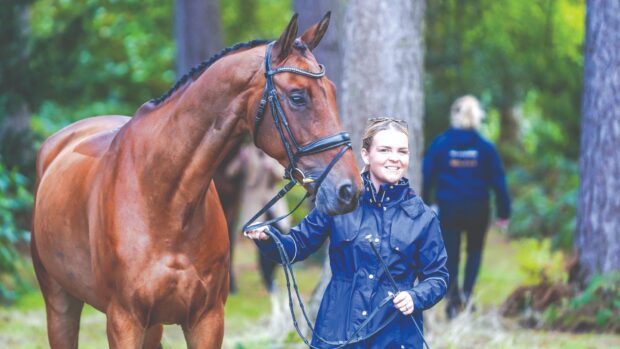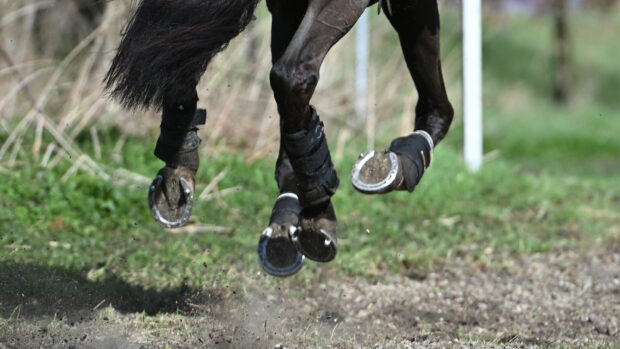A former eventing groom who was paid £100 per week for working 70+ hours, while housed in a mouldy room, says one boss’s attitude was that she should feel privileged to work for him.
The groom, who has left the industry as a result of the poor working conditions, and did not want to be named, had two similar jobs with eventers, until a few years ago.
In an experience similar to another eventing groom, whose experiences H&H reported last week, she would start work at 6.30am, be “lucky to have 20 minutes for breakfast or time to eat a whole sandwich at lunch”, and often finish late, especially during the eventing season. Working extra hours to pack the lorry was not uncommon, followed by a 3.30am departure from the yard the next morning.
“There was never any discussion about hours,” she told H&H. “It was a case of ‘You’re being paid £100 a week as that’s all we can afford’. I got accommodation but at one yard, that was a mould-filled room with four dehumidifiers and at the other, I lived on site so on my days off, the rider would wake me up saying he wanted to go to the gallops.”
The groom said anyone who wanted time off was “ridiculed”.
“They’d say ‘Your heart’s not in it’ and it was, but I know when I’m being abused,” she said. “I had no horse to be kept, no contract. It was like they’re a top rider so you should feel privileged to work for them.”
This groom did not drive at the time and lived far from her home so if she wanted to see her family, her dad had to drive to pick her up, and she would take three days off. But to have such a break, she had to work four weeks without a day off.
“These yards have such high staff turnover as people come in with passion and dedication, to build relationships with the horses — which I think is why they stayed — but they get burned out and run down,” she said. “I left the first yard because of the insult of being there that long and that dedicated — some nights I only had a couple of hours’ sleep — I was offered a £10 per week pay rise. I said I’d rather not, thank you.”
The groom left her second job, which was on the same pay and similar working conditions, as the mouldy room she lived in, sometimes with no heating or hot water, made her ill.
She is now working in human healthcare.
“I’m valued now; and paid for what I do,” she said. “If the horse world paid properly and valued people, I would never have left it. Instead it was ‘You should be grateful to work for me’, but they should be grateful to have us. There’s no horse without legs, but also without the legs of the groom.
“I’ve come back from competitions where the rider has won decent money prizes and we’d be eating fish fingers and beans because we weren’t paid.”
The groom added that the industry has to change, to attract and keep staff.
“It’s no wonder it’s in the crisis it’s in,” she said.
You might also be interested in:

‘Without staff, we have no business’: change needed to ensure a sustainable workforce

‘It’s no wonder they can’t get staff’: competition groom who worked 70+ hours for £200 says industry has to change

Subscribe to Horse & Hound magazine today – and enjoy unlimited website access all year round
Horse & Hound magazine, out every Thursday, is packed with all the latest news and reports, as well as interviews, specials, nostalgia, vet and training advice. Find how you can enjoy the magazine delivered to your door every week, plus options to upgrade your subscription to access our online service that brings you breaking news and reports as well as other benefits.




